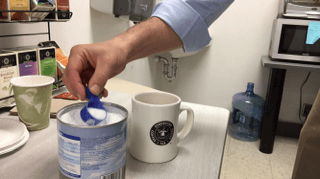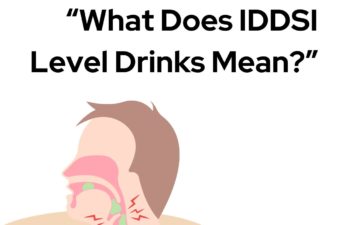Dysphagia, or difficulty swallowing, can be distressing and potentially life-altering. Though it can impact the swallowing of both solids and liquids, dysphagia for liquids presents unique challenges and risks[^1^].
Understanding Liquid Dysphagia
Dysphagia with liquids often occurs when the muscles and nerves that help facilitate swallowing don’t function properly[^2^]. This dysfunction can lead to coughing, choking, or even aspiration (inhaling food or liquid into the lungs), which may result in serious conditions like pneumonia[^3^].
This form of dysphagia may manifest in several ways: individuals may struggle to start the process of swallowing, they may feel like the liquid is stuck in their throat, or they may have the sensation of choking when trying to swallow[^4^].
Causes of Liquid Dysphagia
Numerous conditions can lead to dysphagia for liquids. Neurological disorders such as stroke, Parkinson’s disease, or multiple sclerosis can affect the nerves that control swallowing[^5^]. Ageing can also affect swallowing function, potentially leading to dysphagia in older adults[^6^].

Living with and Managing Liquid Dysphagia
Managing dysphagia often involves working with a healthcare team, including speech-language therapists, dietitians, and occupational therapists, to create a personalised treatment plan[^7^]. This may include exercises to strengthen swallowing muscles, dietary modifications, or strategies to make swallowing safer and easier.
In the case of liquid dysphagia, individuals may be advised to thicken their liquids to make them easier to swallow[^8^]. However, this method can often be cumbersome and time-consuming.
Refreshment Systems Ltd, in partnership with various manufacturers, has developed an innovative dysphagia drinks machine that provides beverages tailored to different International Dysphagia Diet Standardisation Initiative (IDDSI) levels. This reduces manual labour, provides a wide range of beverage options, and ensures accurate IDDSI level for each drink, making life with dysphagia a little easier.
Conclusion
While liquid dysphagia presents distinct challenges, advances in technology and therapeutic interventions provide hope for individuals dealing with this condition. With the right support and resources, it is entirely possible to navigate dysphagia and continue to enjoy the simple pleasure of a good beverage.
[^1^]: American Speech-Language-Hearing Association, Dysphagia in Adults
[^2^]: Mayo Clinic, Swallowing Disorders
[^3^]: NHS, Swallowing problems (dysphagia)
[^4^]: Johns Hopkins Medicine, Swallowing Disorders
[^5^]: National Institute of Neurological Disorders and Stroke, Swallowing Disorders Information Page
[^6^]: American Academy of Otolaryngology–Head and Neck Surgery, Dysphagia
[^7^]: American Speech-Language-Hearing Association, Treatment for Adult Swallowing Disorders
[^8^]: Australian Prescriber, Thickening agents used for dysphagia management




